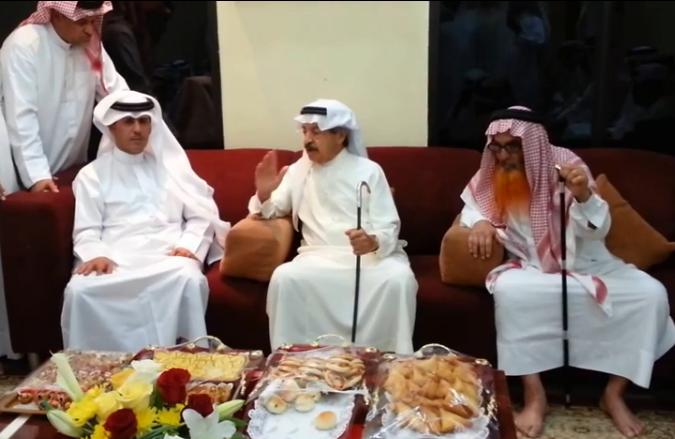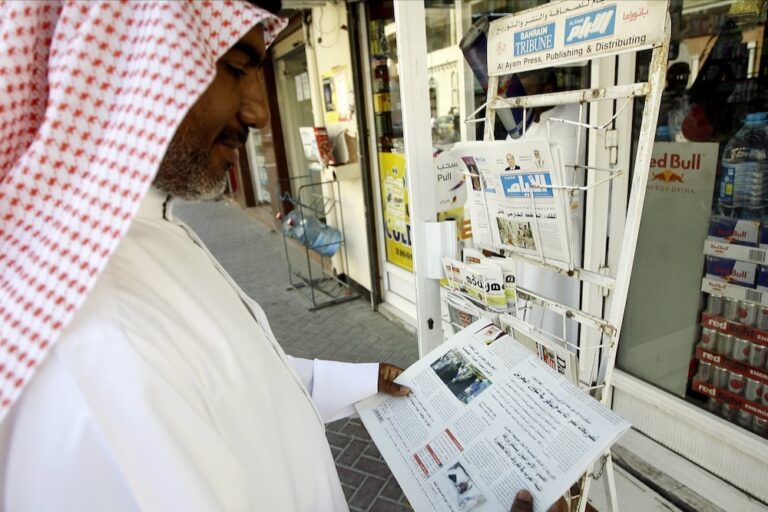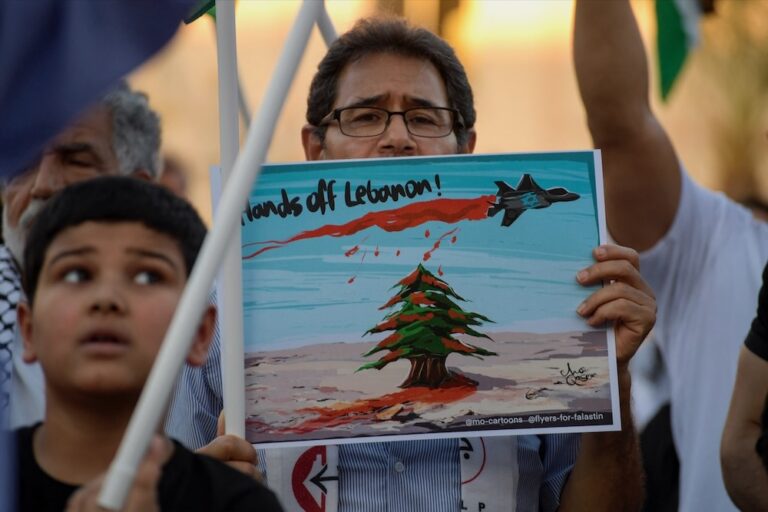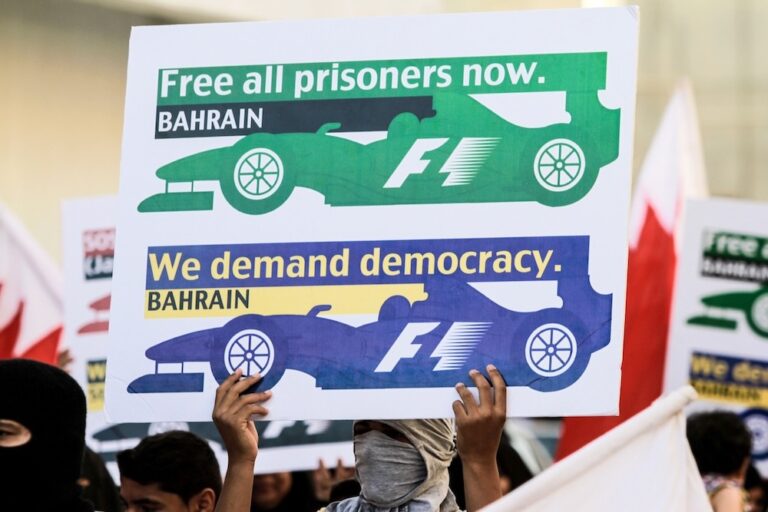On 7 July 2013, a pro-government account on YouTube uploaded a video showing the Bahraini prime minister visiting Lt-Colonel Mubarak Bin Huwail after he was acquitted on 1 July 2013 of charges related to torturing medics in detention back in 2011.
The Bahrain Center for Human Rights (BCHR) is gravely concerned about the Bahraini authorities’ fostering of the culture of impunity, especially in regards to a video recently published online showing Khalifa bin Salman Al Khalifa, the world’s longest-serving unelected prime minister of 43 years, visiting and thanking an acquitted torturer thereby guaranteeing impunity.
On 7 July 2013, a pro-government account on YouTube uploaded a video showing the prime minister visiting Lt-Colonel Mubarak Bin Huwail after he was acquitted on 1 July 2013 of charges related to torturing medics in detention back in 2011.
The prime minister’s visit to Bin Huwail only reaffirms that impunity is even fostered at the highest levels of the ruling family. It also reaffirms the fact that the judicial system in Bahrain is neither independent nor fair; and far from being in line with international standards. Kangaroo courts and unfair trials continue against political dissidents as do the allegations of torture both inside and outside official government buildings; whereas those accused of extrajudicial killings or torture are either acquitted or given very light sentences in regards to the charges.
During the visit, the prime minister began his speech with, “We will not allow any harm to befall you. These laws, no one can apply them to you. Our relationship with you is thus; what is implemented on you is implemented on us. We are one body.”
“As I told you, I came here to thank you, Mubarak, for your patience, and for your kind work,” he continued. “The work that represents this whole family and which contributes to your reputation which can’t get any better.”
The prime minister ended his speech with, “I came here to thank you all, and to thank Mubarak. He is our son, and nothing shall harm you, wherever you are, I’ll always be there for you.”
It is important to note that Bin Huwail had numerous torture allegations made against him over the past years. Rula AlSafar, the nursing society chief who was arrested on 4 April 2011 stated, “The principal investigator, Maj Mubarak bin Huwail, tortured us. He blindfolded and handcuffed us during the interrogation. He wrote whatever he wanted to write and then took our signatures on the false statements by beating us. We were humiliated, intimidated and degraded.”
The culture of impunity in Bahrain has allowed for the acquittal of many other officers as well, despite the credible evidences presented against them; most of the officers whom were put on trial for charges related to torture allegations, where either acquitted or given light sentences.
In addition to the thanks offered by the highest officials to tortuers, the culture of impunity in Bahrain is also represented in the form of offering promotions to the perpetrators instead of accountability. On 28 January 2013, the king promoted Bassam Al-Muraj in a royal decree to become the general director for Anti-Corruption, Economic and Electronic Security in the General Directorate, despite the credible torture allegations which have been made against Al Muraj for several years by local and international human rights organizations.
BCHR believes that the policy of impunity is clearly practiced by the Public Prosecution and the judiciary in Bahrain, and it is a systematic policy implemented at the highest levels of government, which was proven by the recent video of the prime minister’s thank-you speech.
Also, the fact that the United Nations Special Rapporteur on Torture’s visit to Bahrain, which was due to take place in May 2013 and was effectively cancelled by the government, is another indicator that the Bahraini government is not serious about implementing reforms and about abiding by the local and international laws.
Based on the information provided above, BCHR calls for:
- The intervention of the international community and United Nations bodies to prevent the authority from continuing to further exploit the culture of impunity, which will lead to the suffering of more innocent victims.
- Senior officials and members of the ruling family in Bahrain must be held accountable by an independent, transparent and impartial judicial system.
- Investigations must be held in all cases of torture, and the perpetrators have to be held accountable.
- Allies of Bahrain must pressure the government of Bahrain to allow a visit by the Special Rapporteur on Torture.



